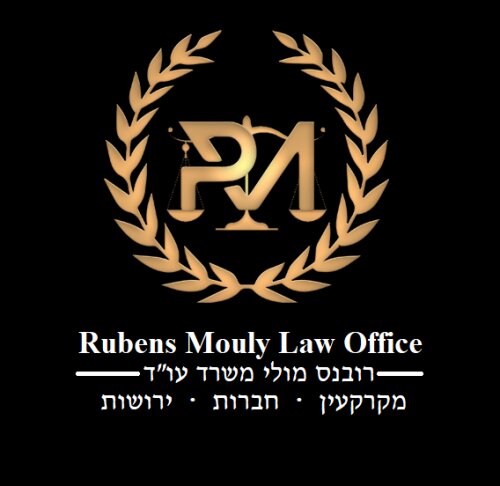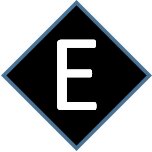Best Foreclosure Lawyers in Netanya
Share your needs with us, get contacted by law firms.
Free. Takes 2 min.
Free Guide to Hiring a Real Estate Lawyer
List of the best lawyers in Netanya, Israel
About Foreclosure Law in Netanya, Israel
Foreclosure in Netanya, Israel, refers to the legal process by which a lender or creditor can repossess a property when the owner fails to meet their mortgage repayment obligations. The process is governed by national Israeli laws and regulations, but certain procedures and practical considerations may vary in Netanya depending on local court authorities. Foreclosure most commonly relates to residential properties, but can also apply to commercial real estate where loans are secured by the property as collateral. The goal is for creditors to recover outstanding debts, usually through judicial sale or auction of the property.
Why You May Need a Lawyer
Navigating foreclosure proceedings can be complex, both for individuals facing foreclosure and for lenders seeking to enforce rights. You may need legal assistance in the following situations:
- If you have received foreclosure notices and want to understand your rights or explore defense options.
- Disputes regarding payment histories, loan modifications, or improper servicing by banks or lenders.
- Issues related to negotiating payment plans or settlements with creditors.
- Challenging the legality of the foreclosure process or the validity of the debt claimed.
- Assisting lenders with the proper filing, documentation, and court appearances necessary for foreclosure.
- Resolving complications concerning tenant rights or third-party interests in the property.
- Representing your interests during property auction procedures or asset liquidation.
Local Laws Overview
Foreclosure in Netanya is mainly governed by Israeli national law, specifically the Pledges Law, the Execution Law, and related regulations. However, local courts play a crucial role in overseeing processes and granting necessary orders. Key aspects to consider include:
- The process typically begins with a lender filing a claim with the Enforcement and Collection Authority, known in Hebrew as Hotzaa LePoal.
- The debtor will receive formal notice and usually has an opportunity to settle the debt or raise objections within a specified timeframe.
- If the debt is not settled, the property may be sold through an auction supervised by the authorities or the court.
- Debtors might be able to stop proceedings by paying off the debt or reaching an agreement with the lender before the auction takes place.
- The court ensures that foreclosure sales are conducted lawfully, and that title transfer is completed in compliance with all legal procedures.
- Tenants and other parties with legal interests may have certain protections provided under local and national laws.
Frequently Asked Questions
What is the foreclosure process in Netanya, Israel?
The foreclosure process typically involves a lender initiating proceedings with the Enforcement and Collection Authority, sending notice to the debtor, followed by a potential auction of the property if the debt remains unpaid. All steps must comply with Israeli law and may involve several court hearings.
Can I stop a foreclosure once it has started?
Yes, in many cases, you have the possibility to halt foreclosure by paying off the existing debt, reaching a settlement with the lender, or by raising legal objections if there were errors in the foreclosure process.
How long does the foreclosure process take in Netanya?
The duration can vary significantly depending on case complexity, court workloads, and whether objections are filed. Some proceedings can take several months or even longer if disputes arise.
What rights do tenants have if a property is foreclosed?
Tenants may have certain rights to remain in the property for a specified period, depending on contract terms and legal protections under Israeli law. It is recommended to consult a lawyer for specific advice if you are a tenant.
Can a lender foreclose without going to court?
No, foreclosures in Israel generally require oversight by the Enforcement and Collection Authority and, in many cases, involvement by the courts to ensure all legal requirements are met.
What happens to any surplus funds from the sale?
If the property is sold for more than the outstanding debt and associated costs, any surplus typically goes to the debtor, after settling any legal and administrative expenses.
Are there alternatives to foreclosure?
Yes, alternatives may include loan restructuring, mediation with the lender, refinancing, or entering into voluntary sale arrangements to avoid the foreclosure process.
Can foreign nationals or non-residents be subject to foreclosure in Netanya?
Yes, the foreclosure laws apply equally to all property owners in Netanya, regardless of citizenship or residency status.
Does bankruptcy prevent foreclosure?
Filing for bankruptcy may temporarily halt foreclosure proceedings, but a court will ultimately decide on the distribution of assets, including property subject to foreclosure.
Are court and enforcement authority fees involved?
Yes, foreclosures involve various fees, including filing, court, and enforcement authority charges. These are generally added to the total debt owed by the property owner.
Additional Resources
If you are facing foreclosure or need assistance as a lender, the following resources may be helpful:
- The Enforcement and Collection Authority (Hotzaa LePoal): Handles claims, collections, and foreclosure procedures.
- Israeli Bar Association: Provides a directory of licensed lawyers and legal aid services.
- Legal Aid Department, Ministry of Justice: Offers assistance to eligible individuals who cannot afford private counsel.
- Netanya Municipality Legal Department: May offer information or referrals for residents dealing with property-related disputes.
- Court Administration Service Centers: Assist with procedural information and filings.
Next Steps
If you are involved in a potential or ongoing foreclosure in Netanya, consider the following actions:
- Gather all relevant documents, including loan agreements, payment records, and any correspondence from lenders or authorities.
- Consult with a qualified attorney experienced in real estate and foreclosure law in Netanya to understand your rights and legal options.
- Explore whether settlement, mediation, or refinancing options are available to resolve the situation before the foreclosure progresses.
- Attend all hearings and comply promptly with any notices or requests from the Enforcement and Collection Authority.
- Stay informed about deadlines and procedural requirements to protect your interests throughout the process.
Early legal advice can be crucial in protecting your property and minimizing financial loss. If you need legal support, it is recommended to contact a lawyer as soon as you become aware of any foreclosure risk.
Lawzana helps you find the best lawyers and law firms in Netanya through a curated and pre-screened list of qualified legal professionals. Our platform offers rankings and detailed profiles of attorneys and law firms, allowing you to compare based on practice areas, including Foreclosure, experience, and client feedback.
Each profile includes a description of the firm's areas of practice, client reviews, team members and partners, year of establishment, spoken languages, office locations, contact information, social media presence, and any published articles or resources. Most firms on our platform speak English and are experienced in both local and international legal matters.
Get a quote from top-rated law firms in Netanya, Israel — quickly, securely, and without unnecessary hassle.
Disclaimer:
The information provided on this page is for general informational purposes only and does not constitute legal advice. While we strive to ensure the accuracy and relevance of the content, legal information may change over time, and interpretations of the law can vary. You should always consult with a qualified legal professional for advice specific to your situation.
We disclaim all liability for actions taken or not taken based on the content of this page. If you believe any information is incorrect or outdated, please contact us, and we will review and update it where appropriate.










